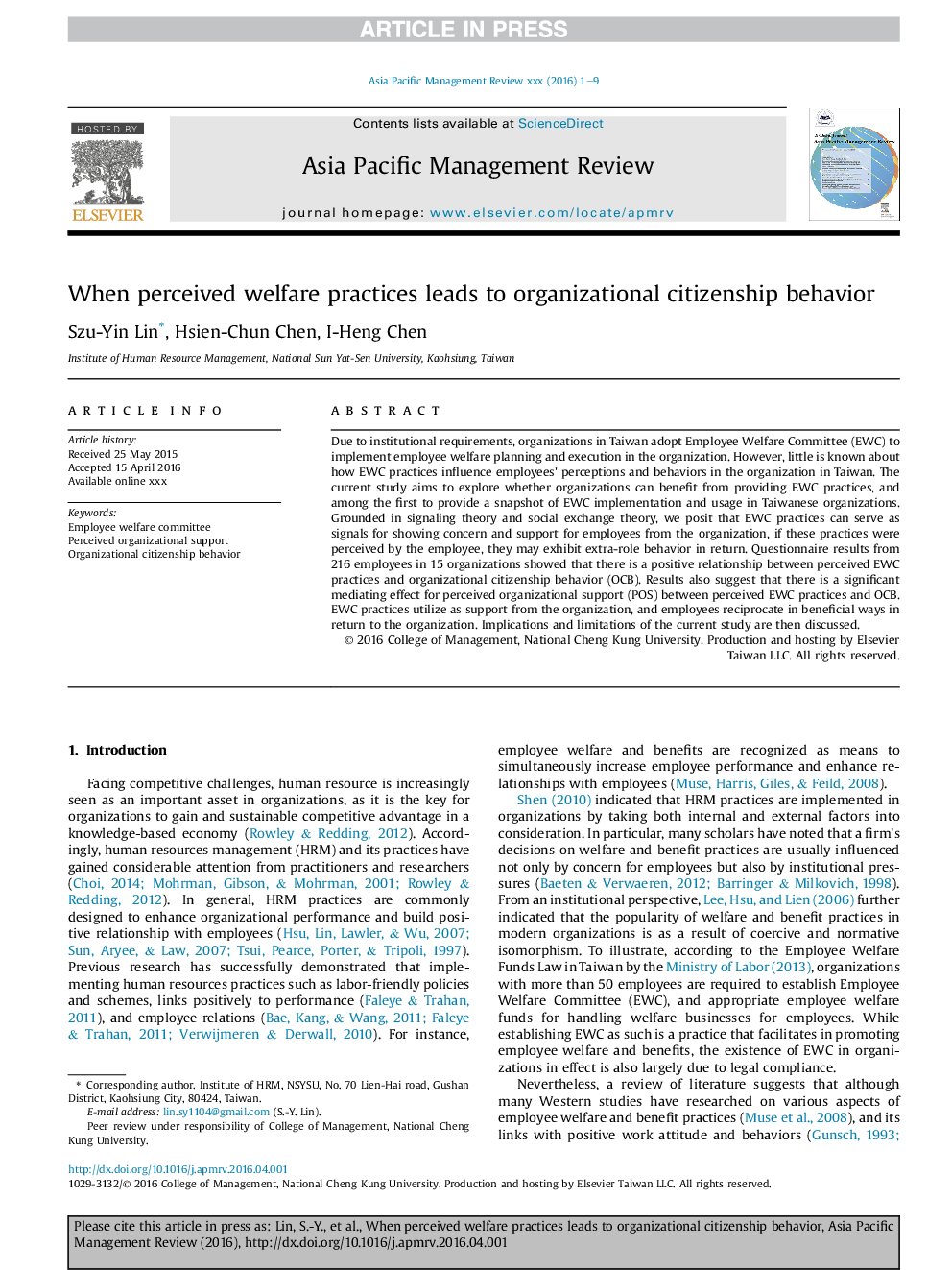| Article ID | Journal | Published Year | Pages | File Type |
|---|---|---|---|---|
| 5110581 | Asia Pacific Management Review | 2016 | 9 Pages |
Abstract
Due to institutional requirements, organizations in Taiwan adopt Employee Welfare Committee (EWC) to implement employee welfare planning and execution in the organization. However, little is known about how EWC practices influence employees' perceptions and behaviors in the organization in Taiwan. The current study aims to explore whether organizations can benefit from providing EWC practices, and among the first to provide a snapshot of EWC implementation and usage in Taiwanese organizations. Grounded in signaling theory and social exchange theory, we posit that EWC practices can serve as signals for showing concern and support for employees from the organization, if these practices were perceived by the employee, they may exhibit extra-role behavior in return. Questionnaire results from 216 employees in 15 organizations showed that there is a positive relationship between perceived EWC practices and organizational citizenship behavior (OCB). Results also suggest that there is a significant mediating effect for perceived organizational support (POS) between perceived EWC practices and OCB. EWC practices utilize as support from the organization, and employees reciprocate in beneficial ways in return to the organization. Implications and limitations of the current study are then discussed.
Related Topics
Social Sciences and Humanities
Business, Management and Accounting
Business, Management and Accounting (General)
Authors
Szu-Yin Lin, Hsien-Chun Chen, I-Heng Chen,
